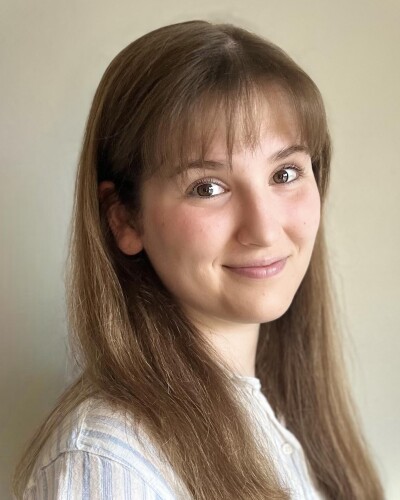Contributing to global scientific research while still in school
Contributing to global scientific research while still in school
Name: Raegen Matthews
Graduation Year: 2024
Major: Biology (pre-med)
Hometown: Urbandale, Iowa
Campus Involvement: SI tutor, sustainability program, Earth Club, Wartburg Community Symphony
Tell us a little about the research you conducted while at Wartburg: In the Winter Term of my junior year, I was getting ready to apply to medical school and a lot of application programs will tell you that you should have research experience. It turns out that you can do it at any year of your undergrad, so I reached out to Dr. Sean Coleman, who is a biology professor. Even though I had never taken a class with him, I heard from other students that he was really receptive to taking on new students for research and mentoring them so I ‘cold-emailed’ him about it. The rumors were true, and we ultimately decided to look at bacteriophages, which are viruses that infect bacteria. We wanted to characterize some that could be found in Waverly and submit them for publication or inclusion into a database. This research was relevant to me because there is an increasing antibiotic resistance crisis, and bacteriophages could eventually be used as a potential alternative treatment to those types of infections, like MRSA. We started this research during the school year and continued into the following summer through the Undergraduate Research Program application and grant.

How do you feel about your research experience overall: What was really rewarding about the research experience was that to apply for the program, you had to set aside what you would be doing for 10 weeks that summer, like a tentative schedule. So I would write out a week one, I’ll do this and be done with it by week two. And if there is anything that the research has taught me, it is that nothing will go to plan. I think when I was nearing week seven, I was only on week three of what I had outlined, and I had to learn how to be resilient and rethink what I needed to do in order to meet my end goal. Even though it was quite the challenge, it was still very rewarding, because I did successfully find a new phage regardless of the challenges. We are now in the process of getting it sequenced and annotated so that it can eventually be published into a database.
What are some of the key takeaways from your research program: I would say that I’m learning more about bacteriophages or my research in general because I can actually apply what I’ve learned in the classroom to the lab. In addition to learning, it was also very rewarding to see how something you’ve worked on can contribute to the world. I know some other students have published phages with Dr. Coleman too, and the fun part is we get the opportunity to name them. So far, we have ‘Burgy,’ ‘Sir Victor,’ and now my phage is called ‘Cool Cookie’ so they’re all Wartburg-related names. In the end, it’s very rewarding to see our research in national databases or have students go and present at conferences about their work and see that even at the undergraduate level, we can still make contributions to global scientific research, as long as we are passionate and resilient enough.